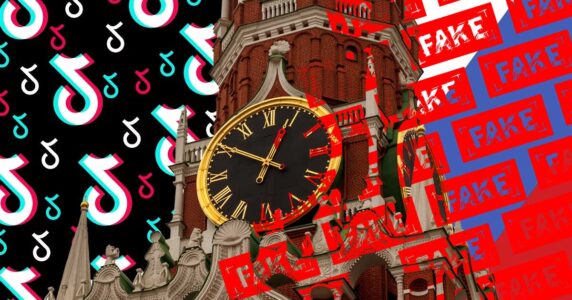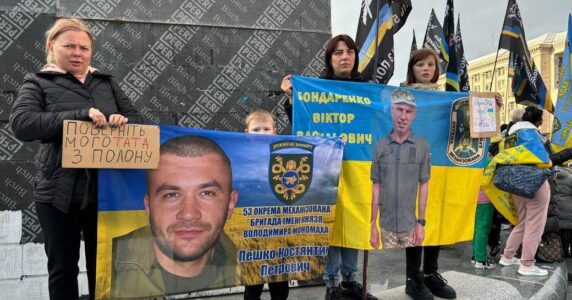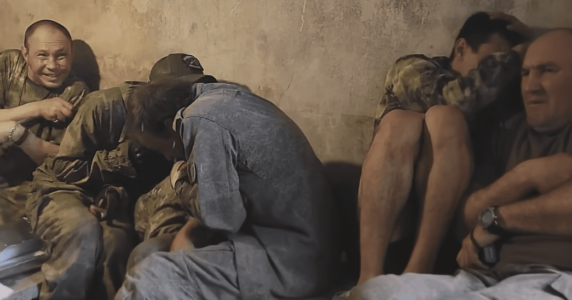Navigation and useful materials
The full-scale Russian invasion made presidential elections in Ukraine impossible. The elections were supposed to be held in 2024. Therefore, the information campaign to discredit the Ukrainian authorities through accusations of “illegitimacy” and “usurpation” was only a matter of time. At the end of February, the Intelligence Committee under the President of Ukraine warned about the operation “Maidan-3”, occur by Russian special services. The operation purpose is to split Ukrainian society and weaken Ukraine’s foreign policy support. One of the points of this operation is the statement about the “illegitimacy” of the authorities’ decisions, adopted after May 20. That is, after the completion of the five-year term of office of President Zelenskyy.
How do attacks on the Ukrainian President take place?
Russia is combining various tools to promote the message of Volodymyr Zelenskyy’s illegitimacy into the public space. The task is to create the appearance of a broad discussion on this topic at different levels with a dominant opinion that the president of Ukraine is no longer legitimate since May 21, or, at least, that “not everything is so clear-cut.”
To increase the visibility of the discussion, the following newsbreaks were created:
- statements of bloggers, political commentators and other “talking heads”;
- pseudo-analytical articles and TV stories of propaganda media;
- statements of Russian officials from the Kremlin, MFA, special services and other official structures.
Bots and trolls, who litter social networks with the same type of comments, as well as anonymous bloggers, who create numerous short videos for TikTok, all of them are responsible for the illusion that opinions about illegitimacy are dominant in society.
READ ALSO: Wartime Elections: Not in Demand and Impossible to Organize
Campaign messages and faces
“Doubts” about the legitimacy of the Ukrainian government and accusations of usurpation have been a part of the propaganda and the Russian officials’ rhetoric since 2014. It fit into the general narrative about “Nazis” who “seized power in a coup”. In particular, in November 2023, Deputy Chairman of the Security Council of the Russian Federation Medvedev posted a Telegram post in which Volodymyr Zelenskyy’s accusation of usurpation was included in the same list as accusations of artificiality of the Ukrainian state, language and other delusions, inherent to this Russian official.
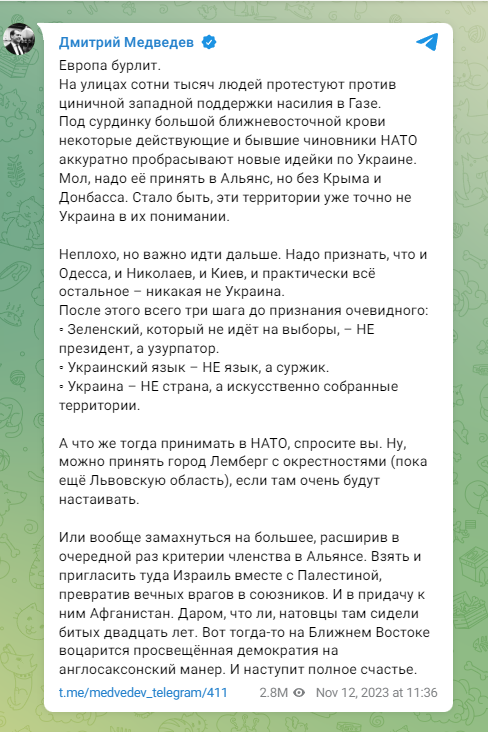
Former People’s Deputy Ihor Mosiychuk was the first who threw “Zelenskyy is an usurper” thesis into the Ukrainian media space. On February 5 (the year 2023 is mistakenly indicated in the video), he has published a manipulative video based on the antithesis: the dictator Putin is holding “elections” and the democrat Zelenskyy is “hiding from the elections under martial law.” From the beginning of February to May 21, the blogger posted more than 10 videos on TikTok and Telegram posts with the mentioned thesis.
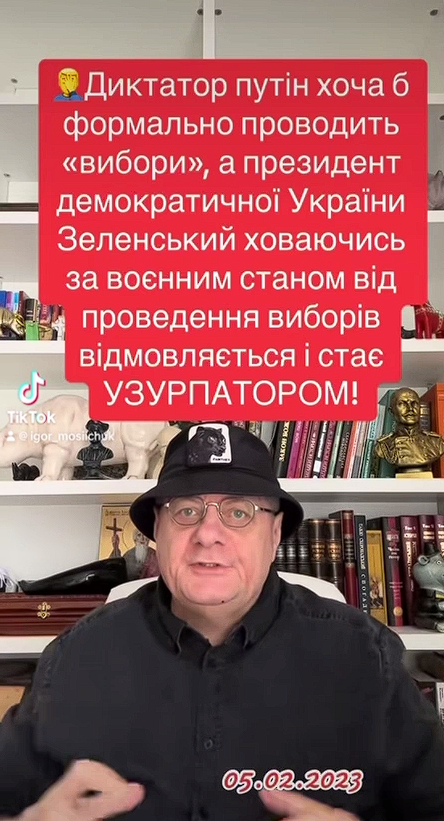
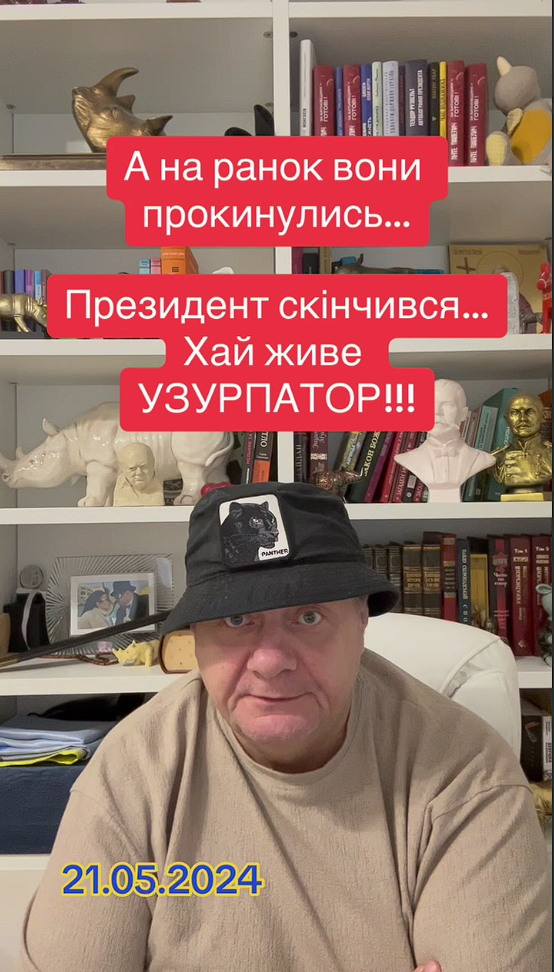
Despite the image of an ardent nationalist, Mosiychuk regularly spreads messages consonant with Russian propaganda. In particular, he attacks the mobilization to the ranks of the Defence Forces, the Orthodox Church of Ukraine (from UOC KP and Patriarch Filaret support position) and spreads fakes resonating with the current informational and psychological operations of the Russian Federation. Mosiychuk’s statements are regularly quoted by Russian propaganda media.
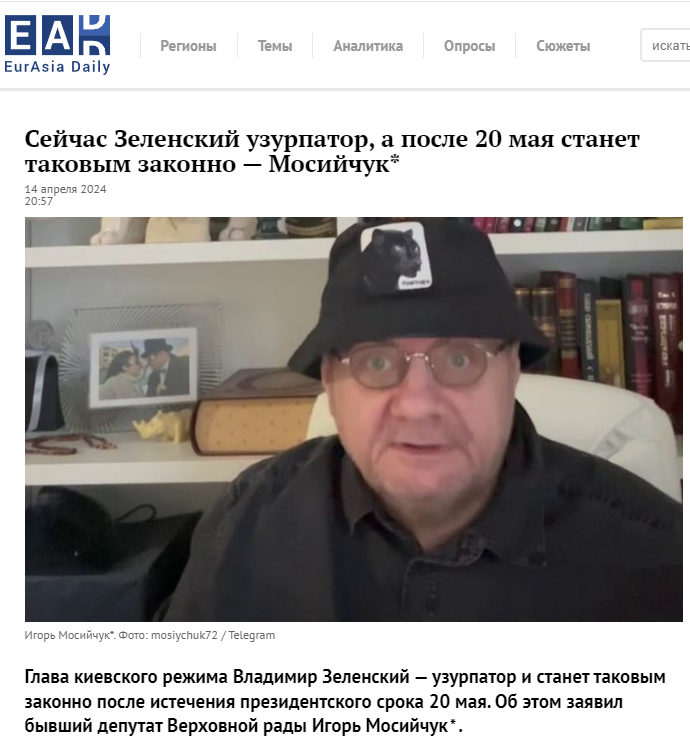
At the end of February, blogger-propagandist Anatoly Shariy, suspected of treason, recorded a video with the hashtags #Zelenskyy #elections #usurpation, and during March a short videos series with the same hashtags on TikTok. Unlike Mosiychuk, Shariy does not directly accuse Zelenskyy of usurpation, but allegedly only draws attention to the problem and acquaints the audience with “different points of view.” However, the favourable to the Kremlin position looks clearly more convincing in his videos.
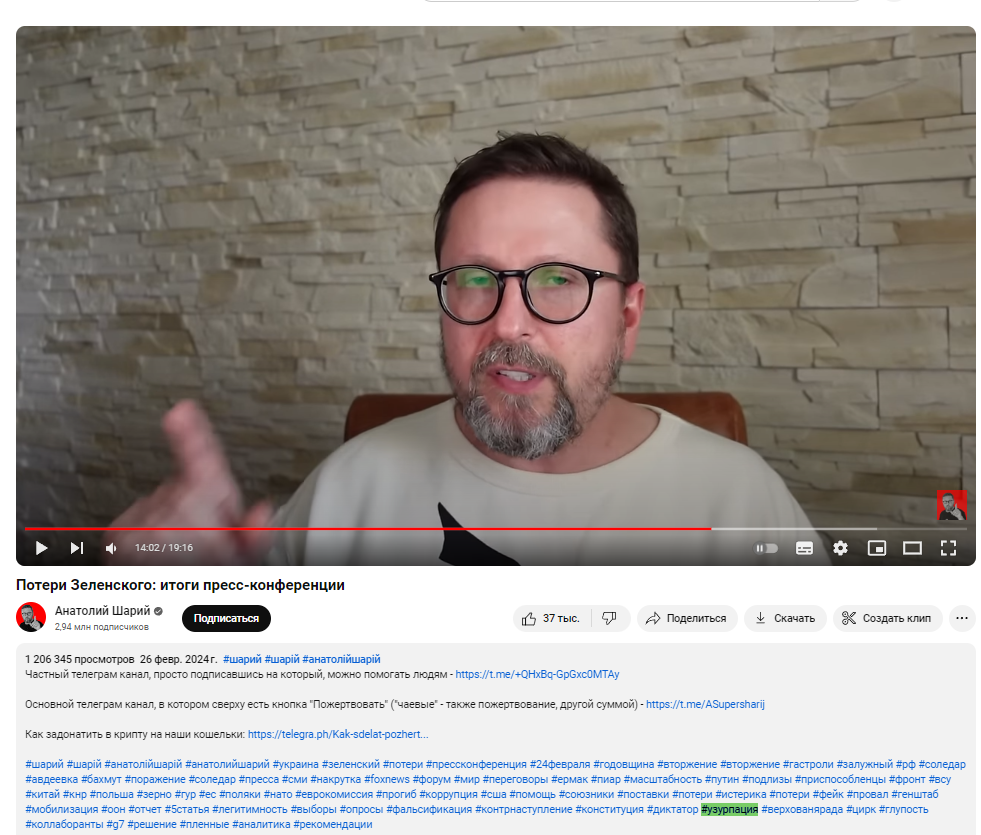
Pseudo-analytical articles and TV stories, created by Russian and Belarusian propagandists, as well as by the sanctioned online newspaper “Strana”, were prepared in the same way, during from March to May.
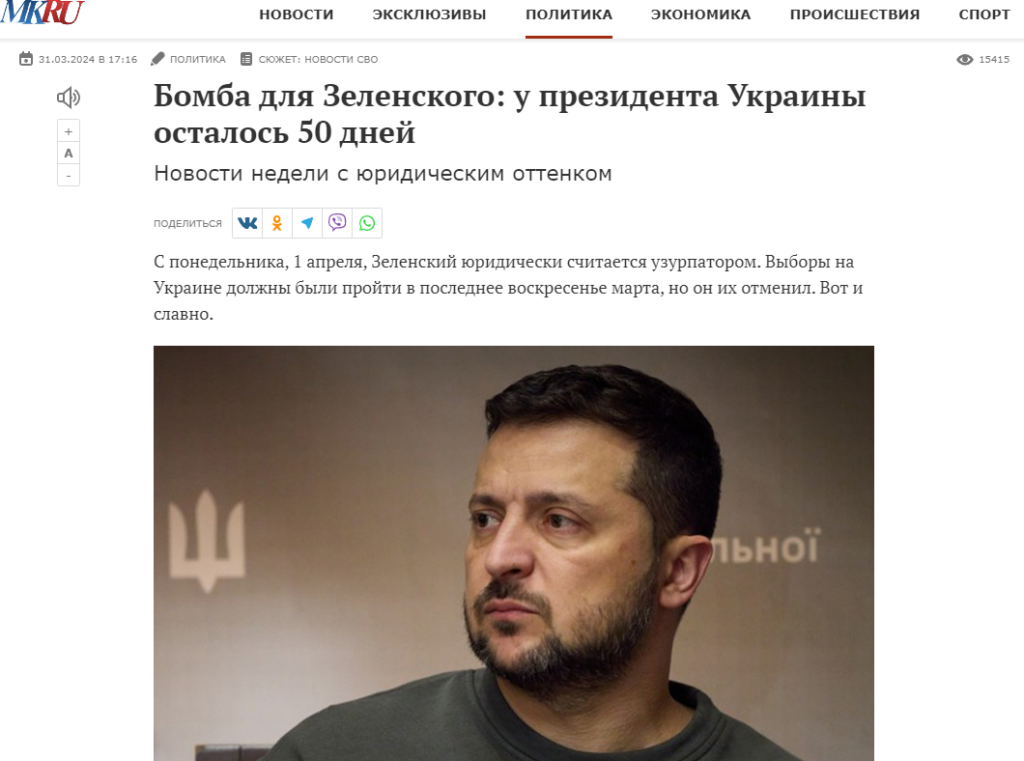
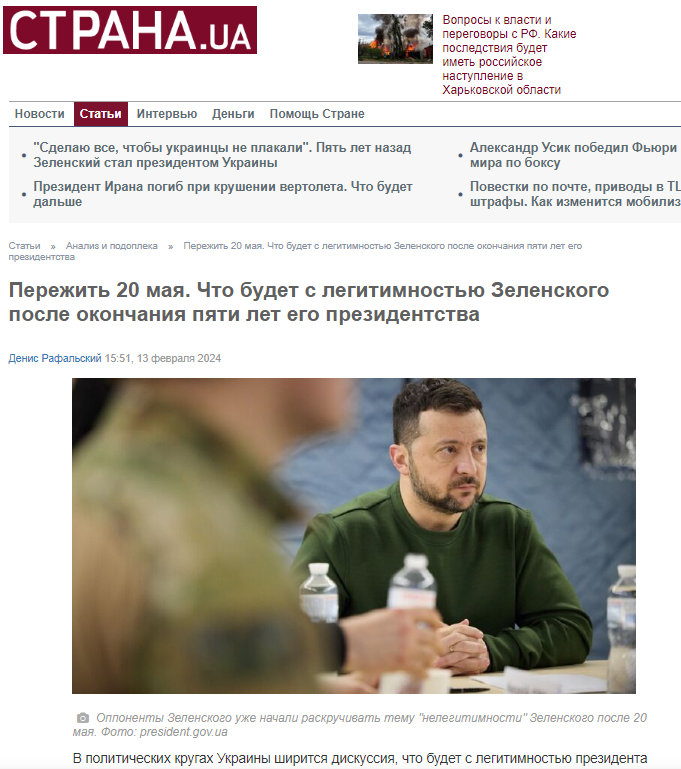
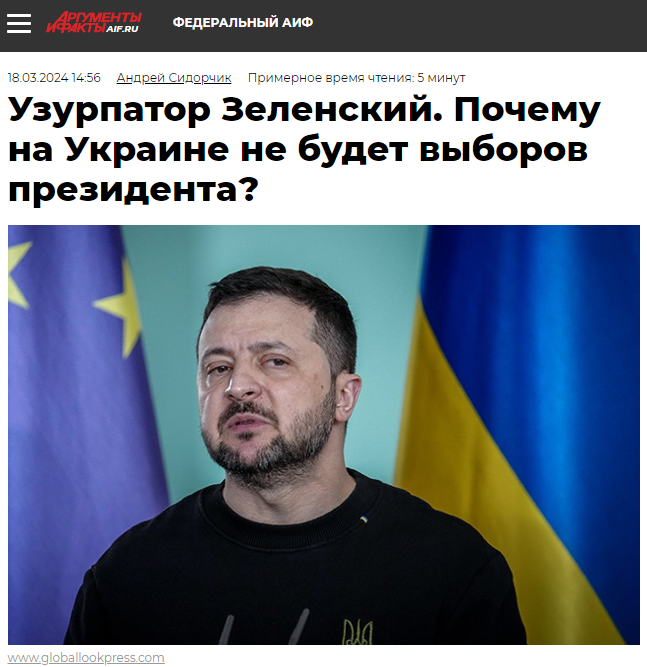
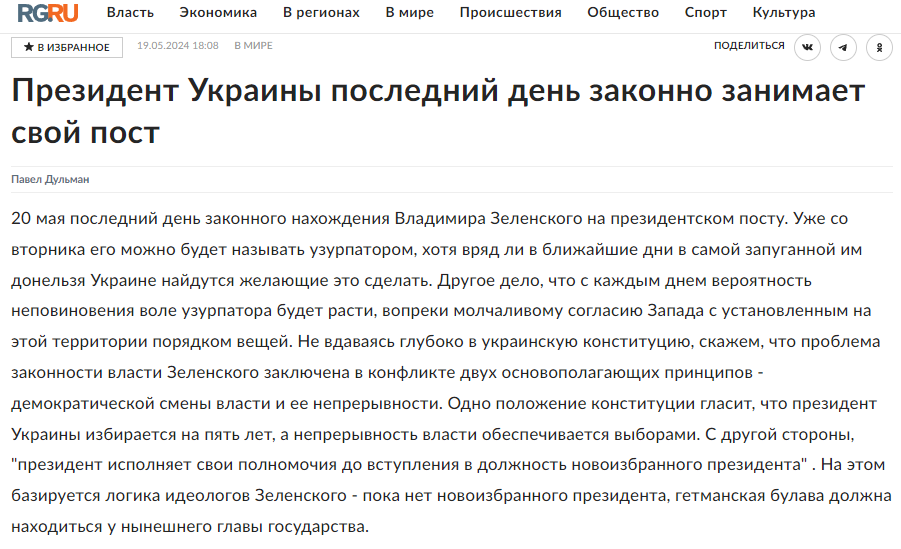
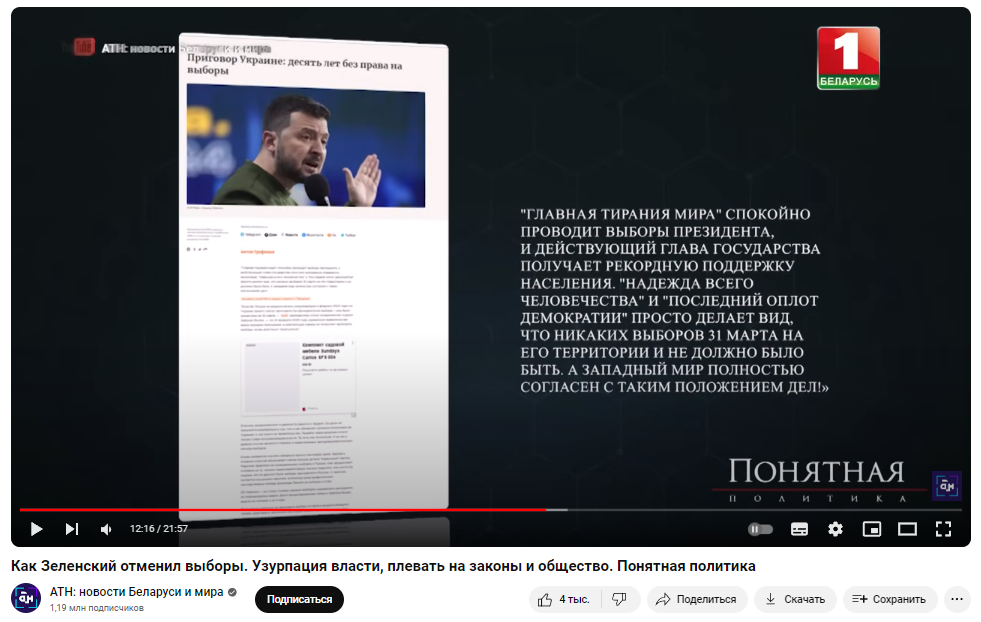
The roles of Ukrainian constitutional law “experts” for the Russian mass media are played by universal home commentators, State Duma deputies, former regulars visitors of banned Medvedchuk’s TV channels, as well as Mykola Azarov, Spiridon Kilinkarov and other “political migrants” declared wanted by Ukraine.
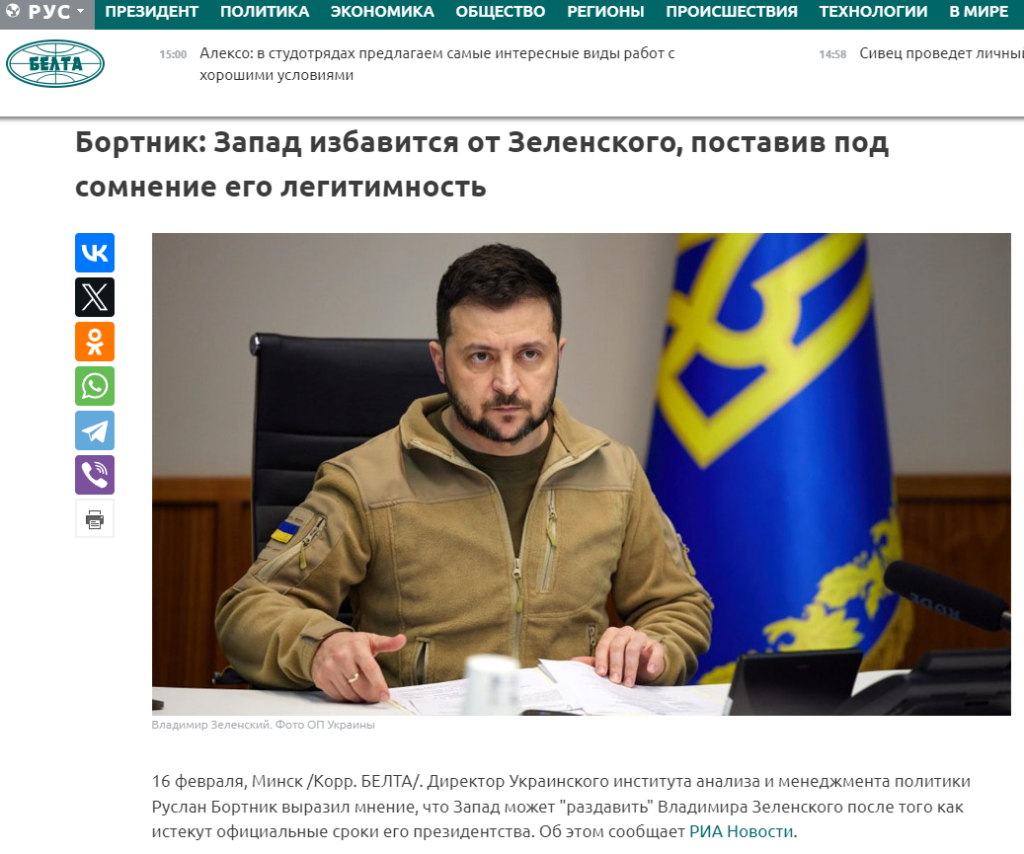
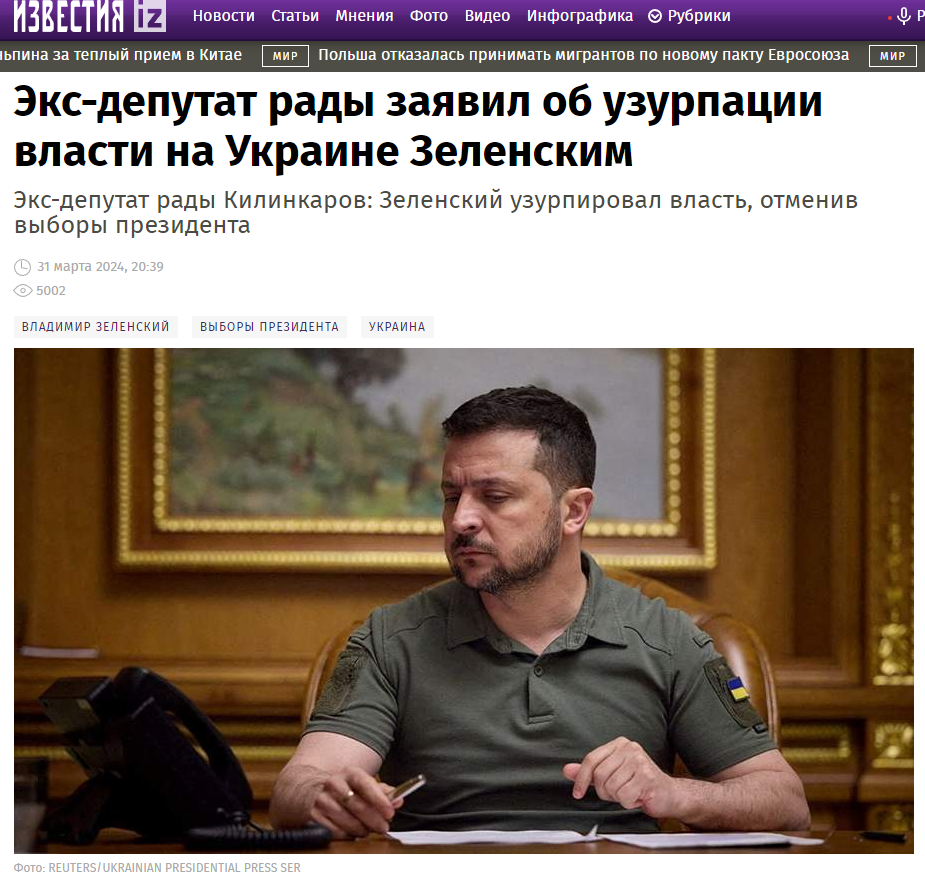
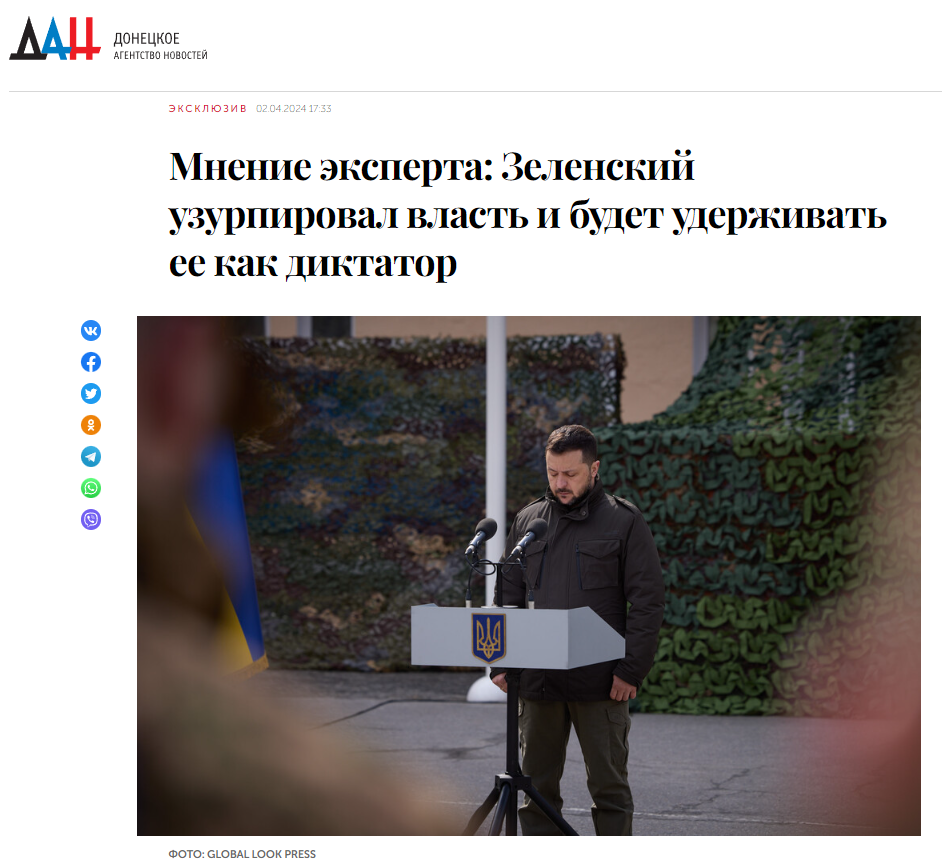
Since February, bot farms, trolls, and TikTok bloggers have been filling social networks with similar comments and videos in which Volodymyr Zelenskyy is called a “usurper”, “impostor”, “illegitimate” and “expired” president. The beginning of the last epithet’s active use was recorded in April. At the same time, the Russians, and their agents of influence are trying to throw the same messages into the info field of foreign countries, in particular, those who support Ukraine.
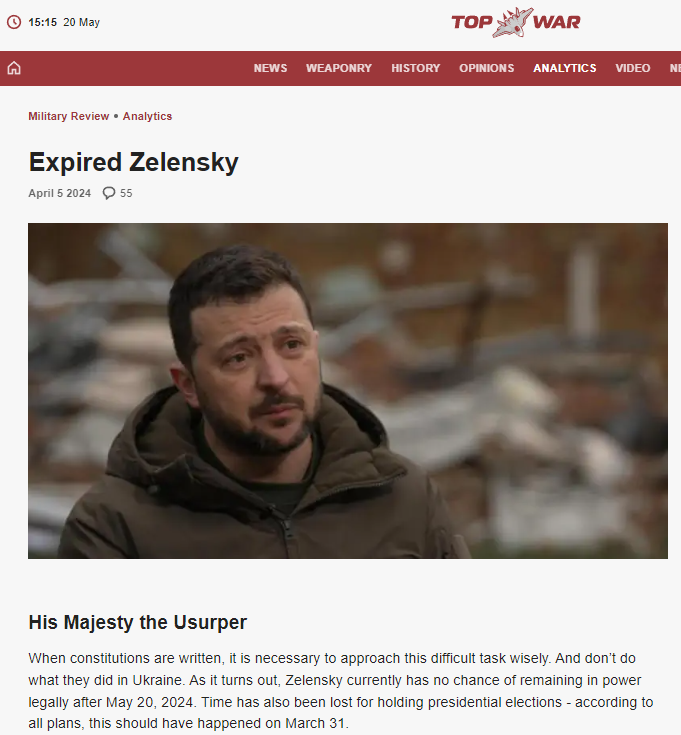
During this period, hundreds of publications were found on web resources, pages in social networks, and Telegram channels in English, Spanish, German, French, Italian, and other European languages, in which the terms “usurpation” or “usurper” are used alongside the surname Zelenskyy. Peaks of such activity were recorded on March 31 and May 20-21, the fifth anniversary of the first round of elections and the inauguration of the current president of Ukraine.

Kremlin’s official position
Putin’s spokesman Dmitry Peskov became the first official to outline the Kremlin’s “official position” on the issue of the legitimacy of the Ukrainian President. His statements were submitted as answers to a request within the framework of a socio-political discussion (directed with the help of the tools described above) and at the same time added new impetus to this discussion and determined its vector.
On March 1, Peskov said that the Kremlin “considers Zelenskyy legitimate.” A month later, the dictator’s spokesman promised to “consider the issue closer to May,” and on April 28, he assured that “Zelenskyy’s legitimacy will soon be in doubt.”



The Ministry of Foreign Affairs of the Russian Federation plays an important role in the information operation. Vasily Nebenzya, the Permanent Representative of Russia to the UN, was assigned the role of a “bad policeman.” Since March 22, he has been making regular irrevocable statements that Volodymyr Zelenskyy allegedly loses legitimacy after May 21. The conditionally “good policeman” in this scenario was Foreign Minister Lavrov, who mildly “disagrees” with the position of his subordinate.
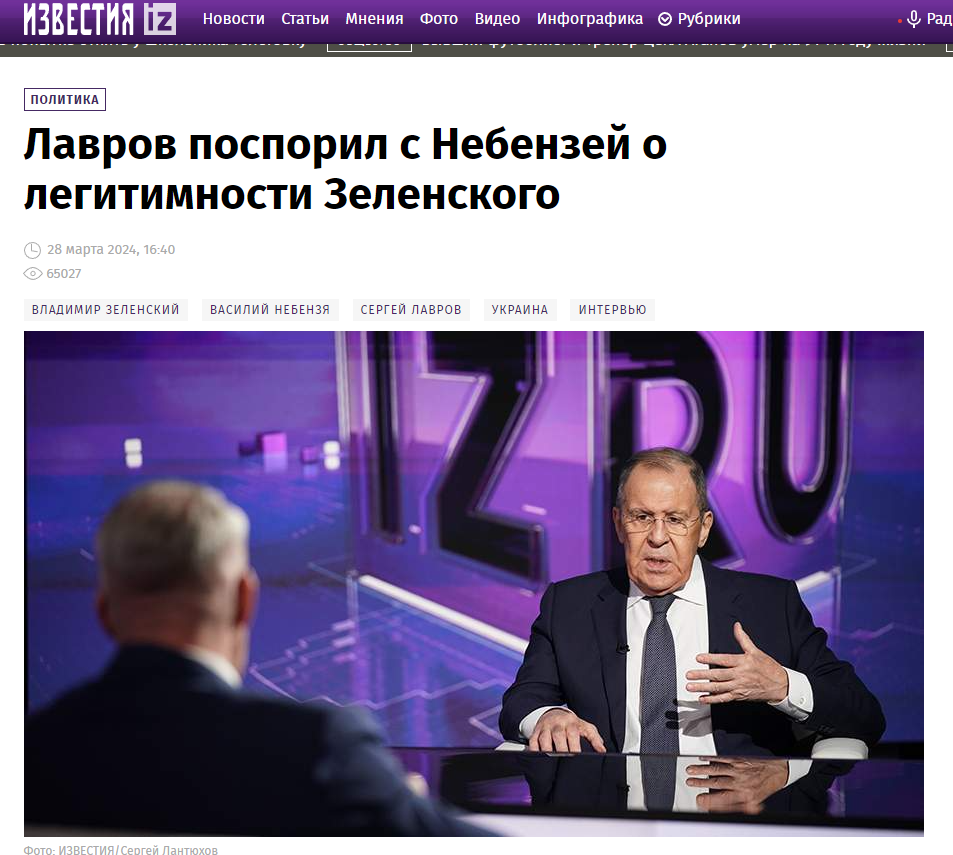
In such a structure as the Ministry of Foreign Affairs of the Russian Federation, by definition, an official cannot make statements that are not agreed with the management. Such self-activity (if it was) would lead to immediate organizational consequences. But nothing like that happened. After Lavrov’s remark, Nebenzya called Zelenskyy illegitimate at least twice after May 21.
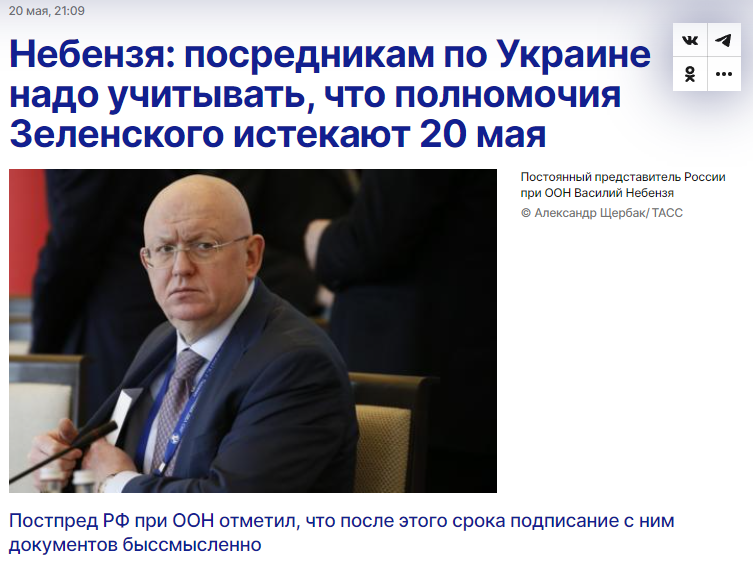
Lavrov and Nebenzya’s statements aimed at bringing the Kremlin-directed discussion to the international level. For the same purpose, Putin made a statement about the “importance of legitimacy” precisely during his visit to the People’s Republic of China on May 17.
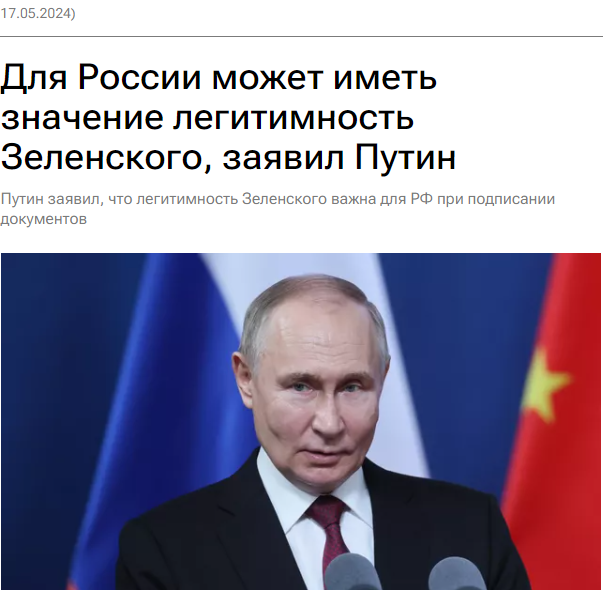
Another Kremlin’s ‘’argument’’ was the statement of the Foreign Intelligence Service of the Russian Federation and the announcement of Volodymyr Zelenskyy wanted by the Russian Ministry of Internal Affairs.
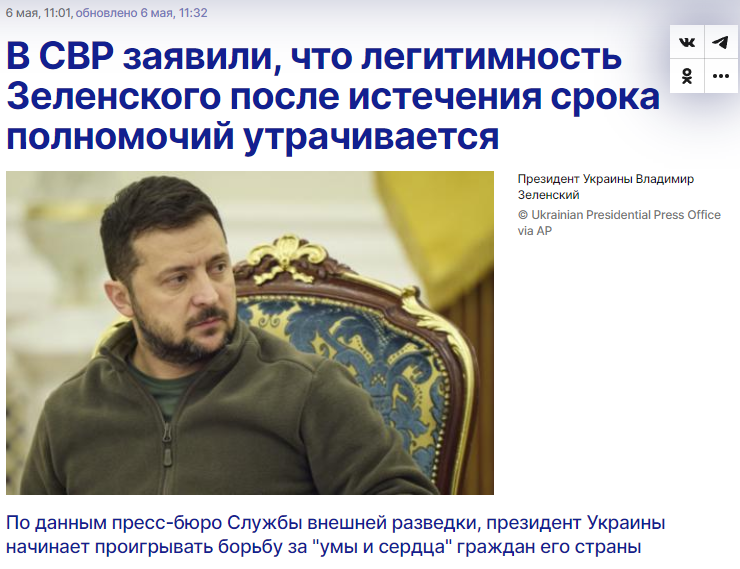
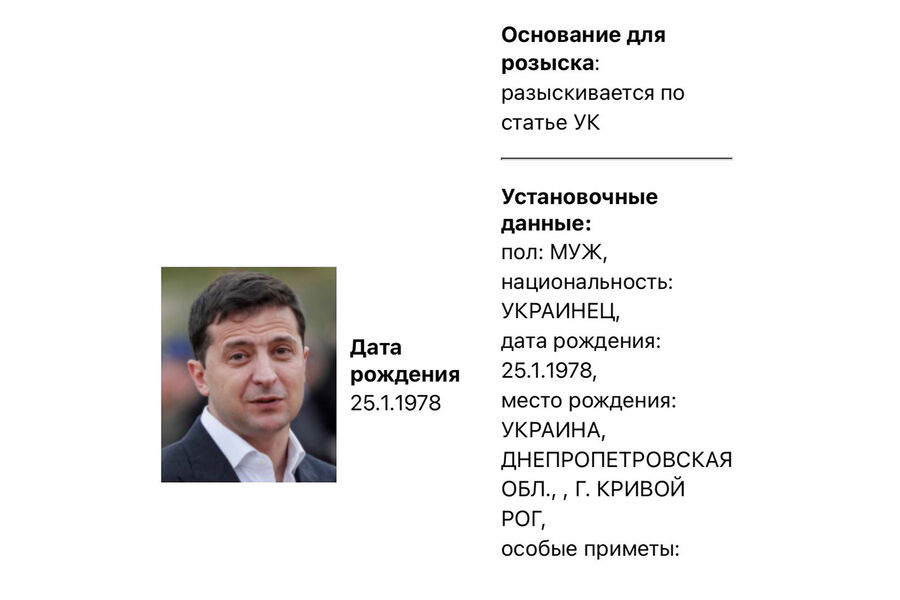
READ ALSO: Volodymyr Zelenskyy: the battle for legitimacy has been won
Why Russians attack the president of Ukraine?
Despite the fact that parliamentary and presidential elections were to be held in Ukraine, the target of the attack was the head of state. This can be explained by the following fact:
- Volodymyr Zelenskyy is the most popular and recognizable Ukrainian politician, the personification of power inside the country and abroad;
- it is important for the Kremlin to discredit Zelenskyy as the commander-in-chief, the main representative of Ukraine on the international arena, and a symbol of the Ukrainian resistance;
- focusing on one recognizable person, rather than four hundred people’s deputies or the parliament as an institution, is a more efficient use of resources.
Russian propaganda continuously attacked Volodymyr Zelenskyy during the wartime. Now, demonstrative “doubts” about legitimacy and accusations of power usurpation have been added to accusations of corruption, lack of independence, canning and other “sins”. These attacks had the following aims:
- undermining internal political stability in Ukraine, provoking conflicts and creating an artificial crisis;
- weakening of Ukraine’s foreign policy positions.
The Russian ultimate goal is the maximum weakening of Ukraine through internal destabilization and international support destruction. All this, in turn, should help the Russian army achieve greater results with less effort.
This operation also allows the Russians to shift the focus of attention from the questionable legitimacy of Putin to the alleged “illegitimacy” of Zelenskyy. The illegality of pseudo-elections in the occupied territories and the non-transparency of voting in the Russian Federation drew attention to NATO, the EU and the office of the UN Secretary General. None of the Western leaders congratulated Putin on his “re-election”, Ukraine and PACE officially refused to recognize Putin as the legitimate president. On the other hand, the postponement of the elections in Ukraine during the wartime was understood by the world community, no country in the world and authoritative international organizations question the Ukrainian president’s authority.
After all, pedalling the topic of “illegitimacy” fits into the propaganda narrative about the “failed state” and is a de facto invitation for world players to decide the fate of Ukraine without its participation.
If you have found a spelling error, please, notify us by selecting that text and pressing Ctrl+Enter.
